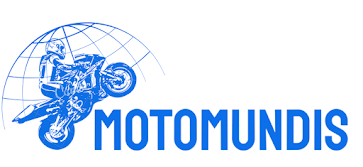It’s not every day that a motorcycle giant like KTM openly admits it’s in deep financial trouble. But here we are, watching one of the industry’s leading brands embark on a dramatic 90-day "self-administration" process. If that phrase sounds like corporate yoga, rest assured—it’s more akin to frantic CPR on a wheezing financial ledger.
What’s Happening?
The Austrian icon behind motocross and MotoGP machines is staring down the barrel of a fiscal catastrophe. The parent company, Pierer Mobility, expects 2024 to end with a net negative outlook in the “very high” hundreds of millions. Translation? Someone’s accountant probably needs a stiff drink.
To pull itself out of this quagmire, KTM has called in the big guns: Citigroup Global Markets Europe. Yes, Citigroup. Because nothing screams "motorsports innovation" quite like Wall Street consultants. They’re tasked with restructuring the company's finances, likely by trimming anything that isn't bolted down—or maybe some things that are.
Too Many Bikes, Too Few Buyers
KTM’s woes aren’t entirely mysterious. The company is grappling with excessive stock, courtesy of, you guessed it, sluggish sales. Apparently, the market for high-performance orange bikes isn’t as recession-proof as hoped. Could it be that the average buyer isn’t rushing to drop tens of thousands on a machine they’ll only ride to the local coffee shop?
Testing the Patience of Test Riders
One of the high-profile cuts? Jeremy McWilliams, a former Grand Prix race winner and KTM’s part-time test rider for 15 years. KTM announced it won’t renew contracts with external test riders, leaning instead on its internal teams to develop future models.
In a classic display of corporate diplomacy, KTM thanked McWilliams for his "significant contributions" and expressed hope for future collaborations—because nothing says gratitude like showing someone the door.
Racing to Save Face
Surprisingly, KTM is adamant that its MotoGP program remains unaffected. Hervé Poncharal, director of the Tech3 team, reassured fans and sponsors that the company is “full steam ahead” for the 2025 season. One can only assume that by "full steam ahead," they mean "keep smiling and pretend nothing’s wrong."
But there’s a catch: KTM’s involvement in other racing disciplines, like the World Rally Raids, is shrinking. It seems the rally dream is the first casualty of this financial storm. Sorry, Dakar fans—your orange heroes might not show up next year.
What’s Next for KTM?
With financial experts now steering the ship, KTM is hoping to stabilize its business by wooing strategic and financial investors. Who knows? Maybe an Elon Musk type will swoop in, declare an obsession with dirt bikes, and solve everything with a tweet.
In the meantime, the company insists it’s still developing bikes for 2025, 2026, and 2027. That’s an admirable level of optimism from a brand trying to plug financial leaks with what looks like duct tape and prayers.
Final Thoughts
KTM’s situation is a reminder that even industry leaders aren’t immune to the pitfalls of overproduction and underwhelming sales. While the company insists it’s “ready to race,” it might want to focus on being ready to balance a budget first. For now, KTM fans can only watch and hope that the brand manages to navigate this skid without going over the financial cliff.


Commentaires
Enregistrer un commentaire